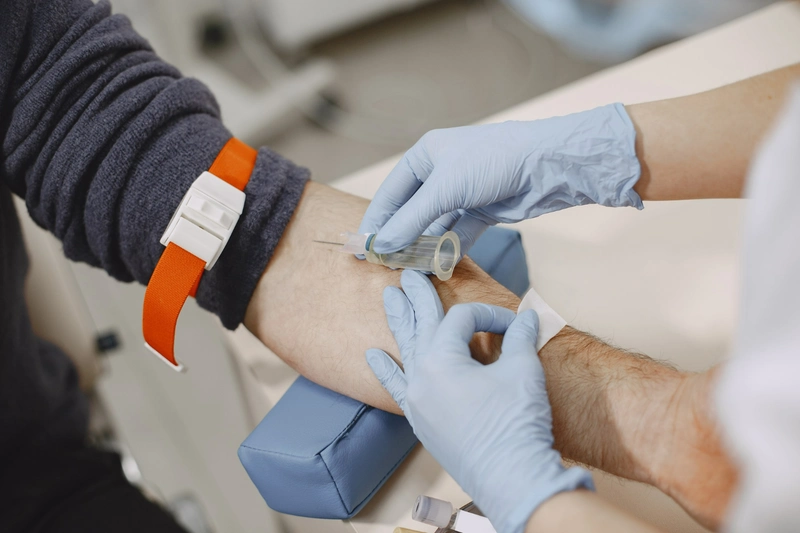- Published on: Aug 18, 2022
- 2 minute read
- By: Second Medic Expert
Understanding Liver Function Test
What is a liver function test?
A liver function test is a blood test that measures the levels of various enzymes and proteins in your blood. These substances are produced by the liver, and they can be a sign of liver damage or disease.
There are a number of different liver function tests (LFTs) that can be used to assess the health of your liver. The most common ones are Bilirubin, Alkaline Phosphatase (ALP), Aspartate Aminotransferase (AST), and Alanine Transaminase (ALT).
Bilirubin is a pigment that is produced when the liver breaks down red blood cells. Elevated levels of bilirubin in the blood can be a sign of liver damage or disease.
ALP is an enzyme that is produced in the liver. High levels of ALP in the blood can indicate liver damage or disease.
There are a few different types of liver function tests, but they all basically measure the same thing: how well your liver is functioning. The most common liver function test is called the serum blood panel. This measures the levels of enzymes in your blood that are produced by the liver. These enzymes include:
- ALP (alkaline phosphatase): This enzyme helps with the digestion of fats and is increased when there is damage to the bile ducts.
- ALT (alanine transaminase): This enzyme helps with the breakdown of amino acids and is usually elevated when there is damage to hepatic cells.
- AST (aspartate aminotransferase):
The liver function test is a common medical test that is used to evaluate the health of your liver. The test measures levels of enzymes in your blood that are found mainly in the liver. Enzymes are proteins that help with chemical reactions in your body. When something is wrong with the liver, these enzymes can be released into the blood, where they can be detected by the Liver Function Test. Some of the things that can be checked with this test include hepatitis, cirrhosis, jaundice, and fatty liver disease. It can also give clues about other problems such as an toxins or alcoholism. The test is usually done as part of a routine checkup or when someone has symptoms that might be related to liver.
There are a few different liver function tests that your doctor may order, depending on your individual situation. These tests can help to assess how well your liver is functioning and whether or not there is any damage present.
There are a few different liver function tests (LFTs) that your doctor may order, depending on what they suspect might be going on with your liver. The most common LFT is the alanine transaminase (ALT) test. This measures the level of an enzyme called ALT in your blood. ALT is normally found in liver cells, so high levels of it in your blood can indicate liver damage. Other LFTs that may be ordered include the aspartate transaminase (AST) test, the alkaline phosphatase (ALP) test, and the gamma-glutamyl transferase (GGT) test. A liver function test is a blood test that measures the levels of enzymes in your blood. These enzymes are produced by your liver and help to break down fats, proteins, and carbohydrates. There are several different types of liver function tests, but the most common one is the alanine transaminase (ALT) test.
ALT is an enzyme that is involved in metabolizing amino acids. When your liver is damaged or inflamed, it releases Jazz hands advertising internships high levels of ALT into your bloodstream. The ALT test can be used to detect liver damage or disease. The normal range for ALT varies depending on your age and sex, but it is generally between 20 and 40 IU/L
There are a number of different liver function tests that can be performed, each of which can give useful information about the status of the liver. The most common liver function tests are the serum glycated albumin test, the serum alkaline phosphatase test, and the serum glutamic-oxaloacetic transaminase (SGOT)test.
The glycated albumin test measures the level of a specific type of sugar (glucose) that is bound to albumin, a protein found in the blood. This test provides an indication of how well the liver is able to process glucose.
The alkaline phosphatase test measures the level of an enzyme that is produced by the liver. This The liver function test is a blood test that measures the levels of certain enzymes and proteins in your liver. These substances are normally present in the liver in small amounts. But if your liver is damaged, these substances can leak into your bloodstream and increase the level of certain enzymes and proteins in your blood.
There are several different liver function tests, each of which measures different enzymes or proteins. The most common liver function tests are the alkaline phosphatase (ALP) test, the aspartate aminotransferase (AST) test, and the alanine aminotransferase (ALT) test.










